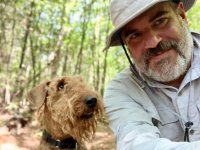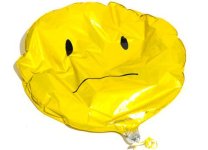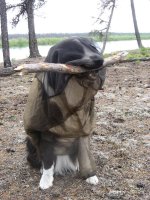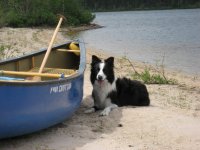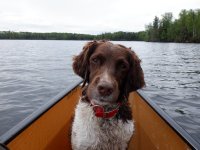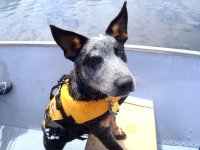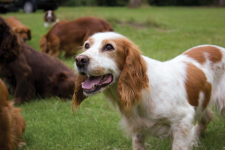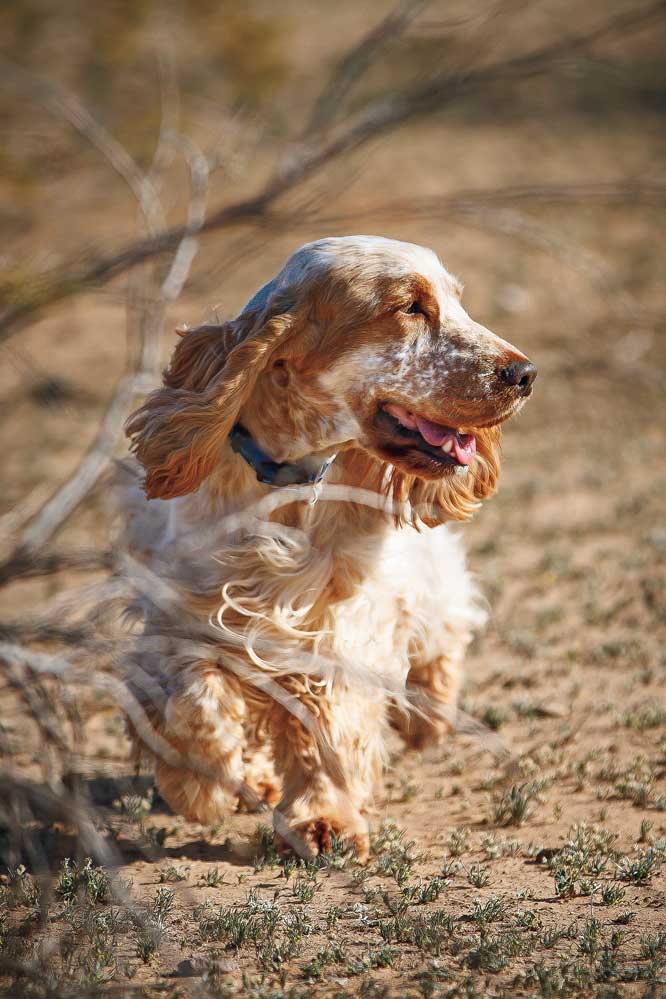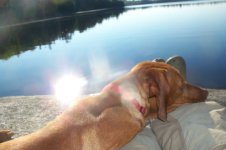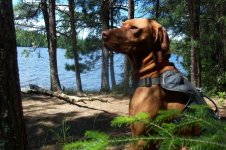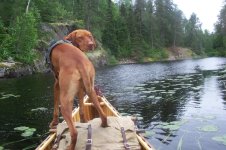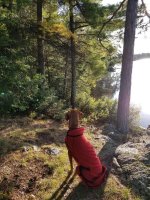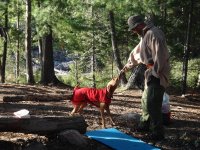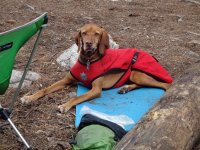- Joined
- Jul 6, 2021
- Messages
- 643
- Reaction score
- 564
Glenn, an unanswerable question. Beyond size and weight there is nature and nurture. You can assist the latter with training, but the former can be a crapshoot with any breed.
A longtime friend had a series of Golden Retrievers, all males son-of-son-of-son from his extended family’s Goldens. All were typical goofy friendly Goldens, except Brugal. Brugal, raised and trained the same way, from the same lineage, was mean, the only snappy and untrustworthy Golden I have ever met.
Our dogs were always mix breeds or mutts; too many pure breeds have been ruined by breeders. Golden retrievers had the brains bred out of them after Gerald Ford had a couple in the White House. Suddenly every suburban cul de sac family had a dumb arse golden. Lassie ruined Collies, bred for a long nose, not smarts.
The best of our dogs was a Rhodesian Ridgeback/black lab mutt. Smart, trainable, people friendly*, Shane’s single flaw was that he did not like other dogs.
*When our sons were babies I noticed an odd Shane behavior. If we had friends over, even friends Shane knew, he would habitually position himself between them and the baby. Not growling, not menacing, just watching.
Aside from a true working dog/hunting dog, bred by a known reputable breeder, I would not want any “pure bred” dog. Just look what happens with Royal families.
A longtime friend had a series of Golden Retrievers, all males son-of-son-of-son from his extended family’s Goldens. All were typical goofy friendly Goldens, except Brugal. Brugal, raised and trained the same way, from the same lineage, was mean, the only snappy and untrustworthy Golden I have ever met.
Our dogs were always mix breeds or mutts; too many pure breeds have been ruined by breeders. Golden retrievers had the brains bred out of them after Gerald Ford had a couple in the White House. Suddenly every suburban cul de sac family had a dumb arse golden. Lassie ruined Collies, bred for a long nose, not smarts.
The best of our dogs was a Rhodesian Ridgeback/black lab mutt. Smart, trainable, people friendly*, Shane’s single flaw was that he did not like other dogs.
*When our sons were babies I noticed an odd Shane behavior. If we had friends over, even friends Shane knew, he would habitually position himself between them and the baby. Not growling, not menacing, just watching.
Aside from a true working dog/hunting dog, bred by a known reputable breeder, I would not want any “pure bred” dog. Just look what happens with Royal families.

